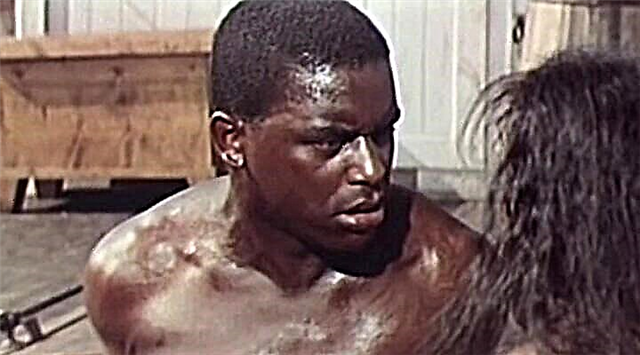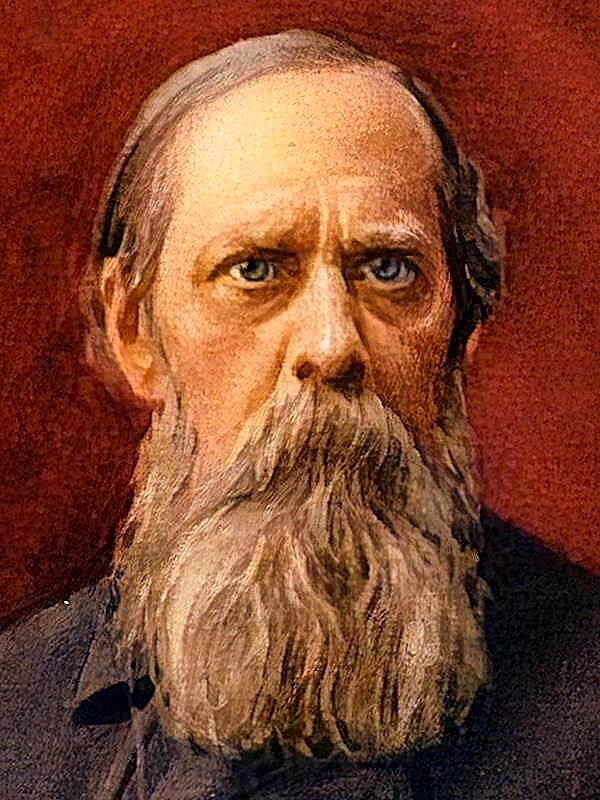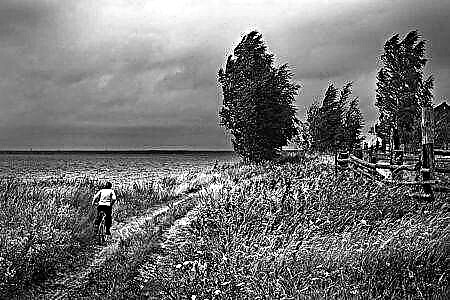“Life to live is not a field to go over,” says folk wisdom. There are no straight, straight paths. People face many problems that require a non-trivial solution. But the reality is good in that there are always those who are ready to come to the aid of the weak, to lend them their reliable hand. N. S. Leskov narrates about the cunning and ingenuity of the “passing genius”, which restores justice
History of creation
In 1884, in the humorous magazine "Fragments" was published the work "Old Genius." The feeling of a “dead end” did not leave Nikolai Semenovich, when everything noble and honest was dying around. Those who deserved exclusively contempt and censure walked uphill and occupied leading positions.
The writer immensely loved the motherland and felt emotional excitement for its future. In the story, the author emphasizes that he is not ready to put up with bureaucratic arbitrariness and will denounce the violation of the law in its various manifestations.
Genre, direction
Leskov is a representative of a realistic trend in literature. The motive for exposing the bureaucratic bureaucracy, occurring at all levels, runs through the story with a red thread.
The techniques of irony and sarcasm are used by the master in order to draw the attention of readers to the realities of that time.
Essence
A kind old woman, laying her own house, takes a high sum of money to a high-society dandy. When the repayment period approaches, the young man disappears, leaving the landowner in distress: failure to pay the loan threatens her, along with her granddaughter and immovable daughter, that the whole family will be on the street.
The old woman is going to St. Petersburg to “seek justice,” but the executive authorities, expressing her sympathy, can not help. Ivan Ivanovich, an official who believes that nothing is impossible, offers his services. The next day, he “turns” the matter in such a way that the policeman personally gives the deceiver his receipt on the refund. This allows you to move the situation from a dead point and forces the "swindler" to fully repay the debt.
The main characters and their characteristics
- Important quality old landowners “Great honesty.” She is generous, does not refuse help to those who turn to her, takes care of loved ones. The troubles periodically arising in her fate force to act decisively, and not to give up. Despite the fact that she was “burned”, her heart still retains faith in human sincerity and decency.
- Ivan Ivanovich - a businessman with a wonderful mind and excellent logic. He enjoys looking for a way out of difficult situations. It is not in his rules to profit from the misfortunes of others (he takes insignificant amounts for his services), most importantly - providing assistance. Decency, commitment, kindness and humanity are the main character traits that inspire confidence in him. He is a man of words and honor, which, above all, has others “open” his secrets to him.
- High society dandy - an egoist living at the expense of others. He belongs to one of those names, before which brilliant prospects open. Every month he is paid a high salary on the job, he receives huge income from estates. It would seem that there is everything to live with dignity. But the hypocritical use of people to increase their own capital becomes his ineradicable habit.
- "Serbian fighter”- Ivan Ivanovich’s assistant, a practical executor of his ideas. I am sure that everything can be arranged, only first you need to drink for courage. He wears a military suit and has an untidy appearance. No permanent housing.
- The narrator - a secondary character with his own vision of current events. He acts as an observer who sincerely sympathizes with the landowner, but does not believe in the triumph of justice.
Topics
Leskov continues in literature the theme of the insecurity of the “little man,” which is closely intertwined with the main theme of his work - righteousness.
It’s no coincidence that Ivan Ivanovich appears in the story. He is the righteous, helping those in need. The old woman tried all sorts of options to “restrain” the insolent, but nothing came of it. Despair seized her. Then this mysterious guardian angel as if descended to mortal earth and helped a defenseless soul. Justice triumphed.
No matter how the powers that be dodge, no matter what “patrons” they choose, the path of lies and humiliation of their own kind will never bring success. Truth will always take its place.
Problems
- Lawlessness problem. How many fates in Russia have suffered from the bureaucratic apparatus? Is a person without rights in our vast country? - These main questions deeply concern the author. Where fear rules, there is nothingness. Leskov wanted readers to understand this gloomy truth.
- The problem of irresponsibility and impunity. The high society dandy is a parasite of clean water. He lives on everything prepared, accustomed to impunity. Why do freeloaders appear in society, heartlessly taking the last money from ordinary people? Surely, they would stop their “dirty” activities if the enforcement and punishment bodies would hold them accountable. In the narrative, neither the bailiffs nor the police dare even the impudent deceiver to say too many words, because they are very afraid of his influential relative.
- Blat and nepotism. One of the problems of the story is the patronage of the “dear little man”. There is a certain stratum of the population in Russia with respect to which those in power cannot and do not want to “take measures” if they were not worse off. The poor old woman as soon as she sought the truth from the "higher", but everything turned out to be in vain. The young loafer had some powerful kinship, which did not allow him to be caught.
- Compassion problem. How much should the heart of a person who has deprived an old woman, a child and his sick mother be petrified? The soullessness and heartlessness of the young dandy amaze.
The main idea
The life of the writer was not easy. Injustice, flattery, hypocrisy surrounded him. But the belief that not everything is lost, that there is always a “good man” who imperceptibly does good, helped him fight for justice. This faith is the main idea of the work. Next to the righteous is always warm and calm. It was these people who inspired the master, connecting the brightest hopes for the future with them.
The meaning of the work is that we must believe in the best, in spite of everything. Then, by all means, one will appear who can help and protect from adversity. The Russian people are not disenfranchised. He possesses ingenuity, integrity, breadth of his soul. Resourcefulness and the desire to do good help a person to take his rightful place in life.












